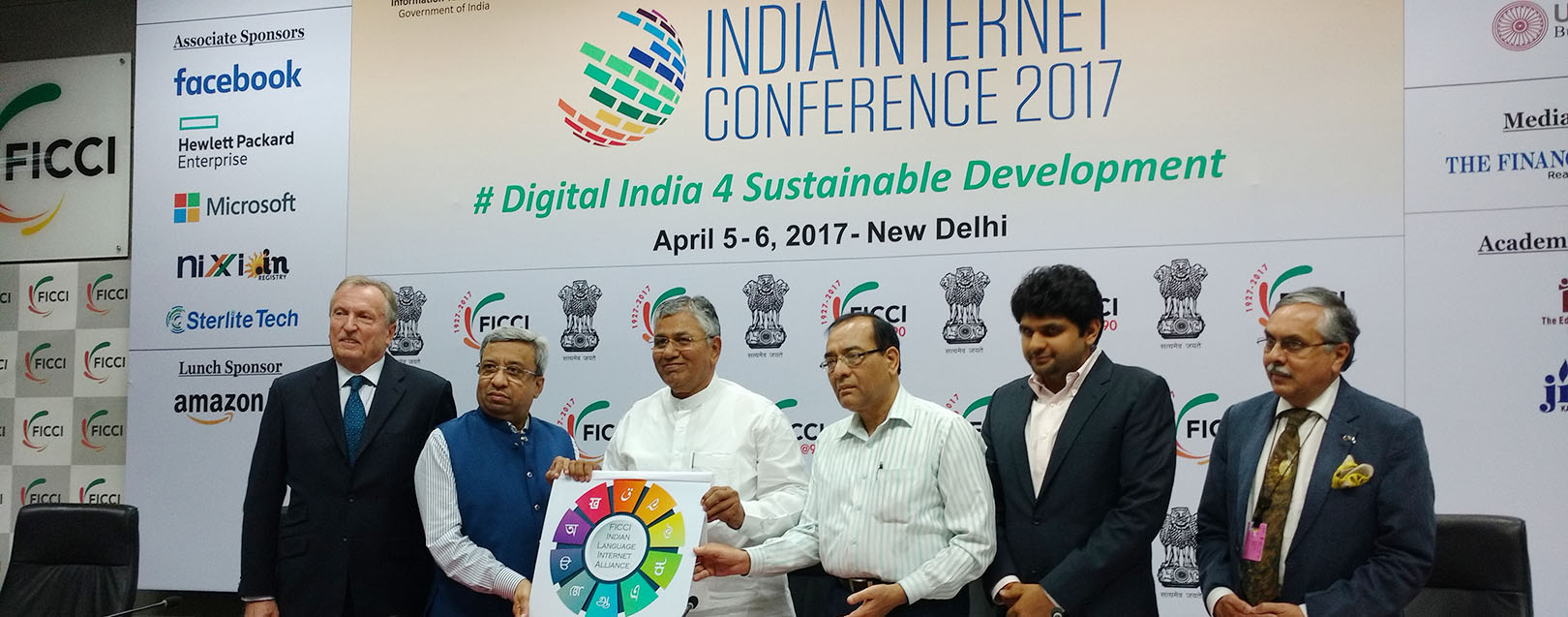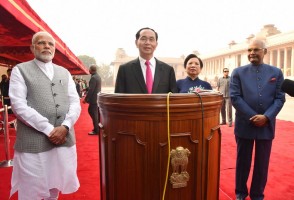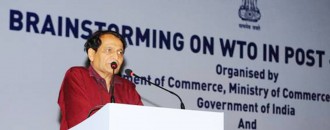
Our aim is to make India a zero net IT import country by 2020: IT Minister
Aamir H Kaki
P.P. Chaudhary, Minister of State for Electronics & Information Technology said on Wednesday that government is aimed to make India a zero net import country in the IT sector by 2020.
“Our aim is to make India a zero net import country in this sector by 2020. As far as the exports of IT and ITes are concerned, there is no doubt we are doing very well,” he said at the two-day India Internet Conference (IIC) 2017, organised by FICCI in association with the Ministry of Electronics & IT (MeitY) in New Delhi.
“My ministry is creating a robust digital infrastructure to ensure efficient delivery of digital services to the citizens. An extensive focus has been laid on promoting domestic products in the country,” Chaudhary said.
“In this direction, the government has taken several initiatives. Under the National Optical Fibre Network (NOFN) project, the government is aiming to provide internet services across the 0.2 million gram panchayats, that it envisions to achieve by 2018,” the minister said.
“Our Ministry is continuously striving to achieve the objective of Digital India as announced by Prime Minister Narendra Modi. We have three vision areas for achieving Digital India objective: (i) laying down of digital infrastructure; (ii) digital service on demand and e-governance; and (iii) digital empowerment of our masses,” he informed.
He further stated that there has been a three-fold increase in the number of e-transactions, from 357 crores in 2014 to 1089 crore in 2016 and the government is aiming to connect 90% of the country with internet services by 2018.
“To achieve this, thrust has been laid on imparting digital literacy, especially in the rural areas. Under the Pradhan Mantri Gramin Digital Saksharta Abhiyan (PMGDISHA), the target is to make 6 crore rural households digitally literate by March 2019,” he added.
Choudhary asserted that with holistic planning and coordination with industry and academia, we can achieve the target of making 20 crore households digitally literate in the same period.
He said that the internet services are expanding in the country, and added, “From half a billion internet users currently in the country, we expect the total number of users to reach a billion by end of 2020.”
The Minister also raised the issue of India’s participation in the global internet domain and said, “The root server, where the global internet domain and main data is stored, is mainly located in North America and Japan. In order to restore the true spirit of World Wide Web, it is pertinent that these servers are situated more equitably across the globe.”
Taking the opportunity in making a case for decentralisation of the root server and extolling the skills of Indian engineers and scientists, the minister mooted the idea of relocating a few of them to India justifying, "that it not only made economic sense but also a logical case to shift the internet server base to India, which has top class pool of engineers and scientists."
The shift to an internet based education is one that many countries have actively taken up. It is time India too understood the importance of such an education. Making a mention of the importance of quality education and healthcare, he said, "Internet could help in making quality education and healthcare accessible to the last mile and content in Indian languages could be a game changer."
The minister launched the ‘FICCI-Indian Language Internet Alliance (FICCI-ILIA) and released its logo. FICCI, along with founding member Google and other industry stakeholders, were a part of the initiative.
Speaking at the event Dr. Gulshan Rai, National Cyber Security Coordinator, NSCS, while highlighting the importance of cyber security, said that the Government had approved the cyber security framework.
“Though security plans were in place there was a need for active implementation of these to leverage technology and tackle with security issues. Sector requires IT infrastructure and the industry should play a responsible role,” he added.
In his special address, Malcolm Johnson, Deputy Secretary-General, International Telecommunication Union, said that across the globe, less than half the population was connected digitally and this was due to lack of awareness about the benefits of internet, lack of regional and relevant content and affordability.
Pankaj Patel, President, FICCI, said that with the dream of 'Transforming India' to a ‘New India’, the Government has already launched several key initiatives aiming for the transformation of India into an empowered and knowledge-based society.
Virat Bhatia, Chairman, ICT & Digital Economy Committee, FICCI, said that together industry and government must utilise the internet and ICTs as socio-economic tools for development, resonating with sustainable development goals set by United Nations in their Agenda 2030.
Anant Goenka, Executive Director, The Express Group, said that with the huge influx of data and content, the onus was on the readers to proactively make choices of what kind of content they were accessing. With local languages being incorporated in the digital sphere, the number of consumers was bound to grow, he added.





 to success.
to success.